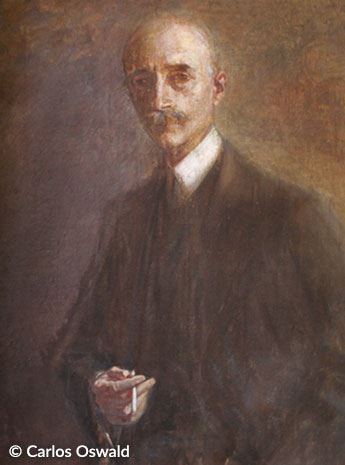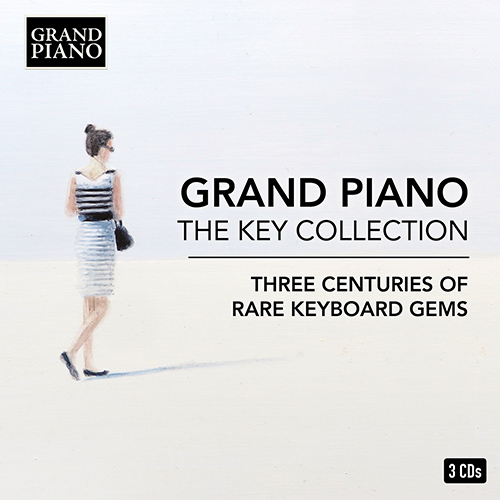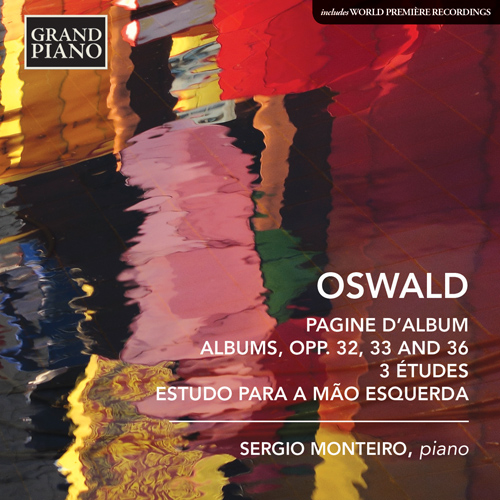
Henrique Oswald (1852 - 1931)
One of the greater names in Brazilian music of the 19th century, Henrique Oswald was born in Rio de Janeiro in 1852, the son of a Swiss father and Italian mother, both musicians. A year after his birth the family moved to São Paulo, where his father became involved in the music business, while his mother’s reputation grew as a piano teacher. It was, in fact, with his mother that Oswald had his first piano lessons, before going on to study with Gabriel Giraudon.
In 1868 Oswald moved to Europe, where he studied the piano with Buonamici and Henri Ketten and composition with Grazzini and Maglioni. He settled in Florence and became a European musician, assimilating fully the culture of the continent from the age of 16.
Oswald’s long stay in Italy came about through the generosity of the Emperor Pedro II, who had been present at a recital by the young pianist in 1871, during a visit to Florence, and granted him a substantial allowance that continued for almost 20 years. Oswald married an Italian singer, Laudamia Gasperini, known to both Liszt and Brahms, and became a teacher at the Music Institute in Florence. He absorbed musical influences from refined style, especially effective in his piano compositions. Proof of his ability in this field came with his spectacular victory in the Composition Competition promoted in 1902 by Le Figaro in Paris; his work Il neige, for piano, won over no less than 600 competitors, gaining the first prize on the decision of a jury that included Saint-Saëns, Fauré and Diémer.
In 1903 Oswald returned to Brazil, leaving his family in Europe, to take up the position in Rio de Janeiro as director of the National Institute of Music, the present School of Music of the Federal university of Rio de Janeiro, upon the invitation of president Rodrigues Alves. He retained his position for three years, but never succeeded in overcoming the difficulties inherent in the functions of an administrator; he felt himself alienated from the musical world. He then became a teacher, with Luciano Gallet, Fructuoso Vianna and Lorenzo Fernandez among his pupils, dividing his time between Brazil and Europe until 1911, when he decided to settle definitively with his family in Rio de Janeiro. Here, from the age of 60, he spent the two final decades of his life, becoming professor at the National Institute of Music and making his house an influential centre for chamber music. He trained a generation of pianists and composers and became one of the most influential figures in Brazilian musical life in the first part of the present century.



 Grand Piano has gained a reputation for producing high quality recordings of rare keyboard gems. Dedicated to the exploration of undiscovered piano repertoire, the label specialises in complete cycles of piano works by many lesser-known composers, whose output might otherwise have remained unknown and unrecorded.
Grand Piano has gained a reputation for producing high quality recordings of rare keyboard gems. Dedicated to the exploration of undiscovered piano repertoire, the label specialises in complete cycles of piano works by many lesser-known composers, whose output might otherwise have remained unknown and unrecorded.






